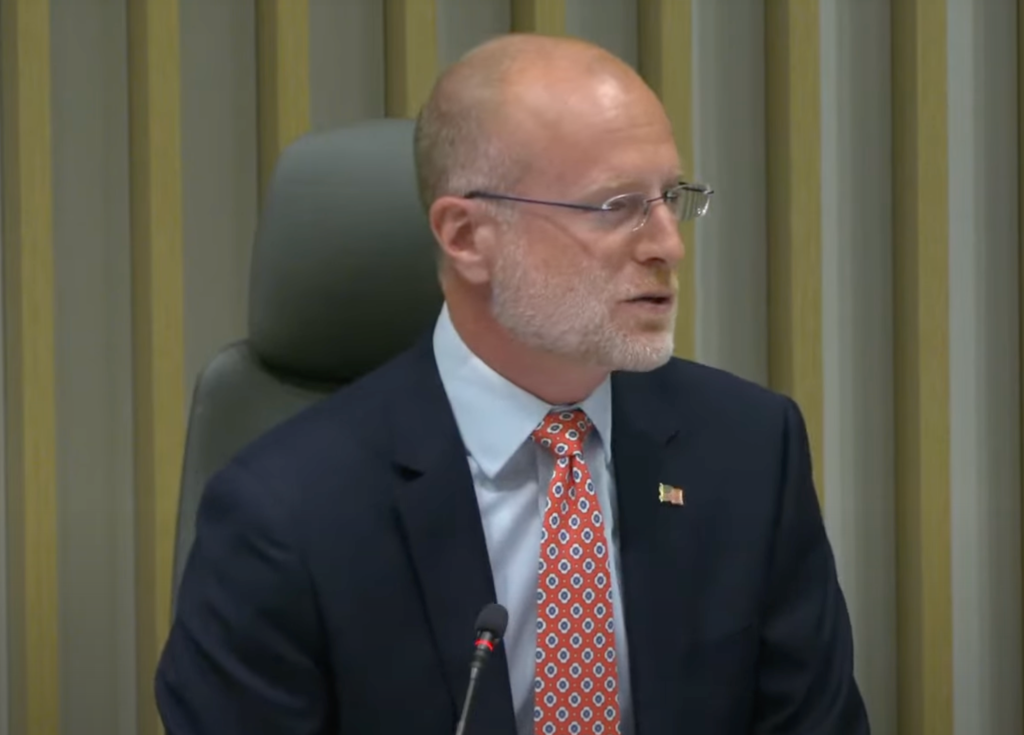FCC Moves Forward on Efforts to Promote Spectrum
Both the AWS-3 and Upper C-Band items included language seeking input on boosting Tribal spectrum ownership
Jake Neenan

WASHINGTON, Feb. 27, 2025 – The Federal Communications Commission voted unanimously Thursday to propose rules for its upcoming spectrum auction and seek input on how best to open up the upper C-Band. Commissioners said both included language seeking input boosting Tribal spectrum ownership.
The agency’s authority to sell off airwaves as it sees fit has been lapsed since March 2023, but late last year Congress greenlit a one-off re-auction of licenses in the AWS-3 band that were returned to the agency by Dish after a legal dispute. The proceeds are set to pay for reimbursing smaller providers for replacing gear from blacklisted Chinese providers.
AWS-3
The agency moved to put forward proposed rules for its AWS-3 auction, which the agency by law has to conduct by June 23, 2026. Mobile carriers use the spectrum for their 5G networks. The most valuable licenses set to be up for grabs cover Boston, Chicago, and New York City.
Staff said the proposed rules bring the original 2015 auction procedures in line with current standards, including by instituting a 15 percent bidding credit for rural bidders and raising the gross revenue threshold under which participants are considered small businesses to $55 million over the last five years.
The approved version is largely in line with the draft that was circulated publicly, officials said, except for the inclusion of a section seeking input on a Tribal priority window. The agency instituted a window for tribes in rural areas to apply for free licenses in the 2.5 GigaHertz (GHz) band when it conducted that auction in 2020 under Chairman Ajit Pai.
The Institute for Local Self-Reliance, which along with Tribal governments and other consumer groups had advocated for the language, was pleased.
“We’re really excited about it,” said Chris Mitchell, director of ILSR’s Community Broadband Networks Initiative. “We’ve done a lot of work with tribes building out 2.5 GHz networks, and it’s been really helpful in connecting homes and businesses in areas that had no other options.”
The low density of some Tribal lands can lead to spectrum lying fallow, he said, making it important for tribes and Tribal ISPs to scoop up those airwaves directly when they can.
“While there are legal and procedural issues to work through, I’m glad we’ll be building a public record moving forward,” FCC Commissioner Geoffrey Starks said.
Upper C-Band
The agency approved an inquiry into whether and how to open up the 3.98-4.2 GHz band, or upper C-Band, currently occupied by satellite video services, for “more intensive use.”
The 5G industry, which bought the C-Band airwaves directly below for their mobile networks and are itching for more mid-band spectrum, celebrated when the plans were announced. But a filing from Elon Musk’s Starlink suggested the satellite provider was also interested in using the spectrum for direct-to-device services.
Commissioners appeared inclined to at least hear out use cases other than additional 5G capacity, with FCC Chairman Brendan Carr noting “nothing was off the table.”
“My edits will ensure this NOI unambiguously solicits feedback not just on the potential for terrestrial or space-based services, but also a potential combination of multiple services simultaneously,” Starks said. “It is imperative that we, as I’ve said before, do more with less.”
In an update from the draft, Starks and Commissioner Anna Gomez said the approved item also sought input on facilitating Tribal ownership in the band.
“I look forward to hearing from all Tribal nations on whether a Tribal priority window in the upper C-Band would create opportunities for deploying communications on Tribal lands,” Gomez said.
Robocalls
The FCC has been engaged in a yearslong game of cat and mouse with scam callers. The agency moved Thursday to mandate the use of do-not-originate lists – lists of suspicious numbers that automatically get blocked – by more providers along the call chain.
“While there is no silver bullet, the FCC needs to keep pushing forward on multiple fronts,” Carr said.
Jessica Rosenworcel, the previous FCC chairwoman, had flagged a Supreme Court decision narrowing the set of callers the agency could target and a lack of authority to collect fines with Department of Justice involvement as impediments to the agency’s ongoing crackdown.
The agency also moved to allow for silent emergency alerts in an effort to prevent users from opting out entirely and to make the system safer in cases of active shooters, and sought comment on updating its rules preventing too-loud TV commercials.









Member discussion